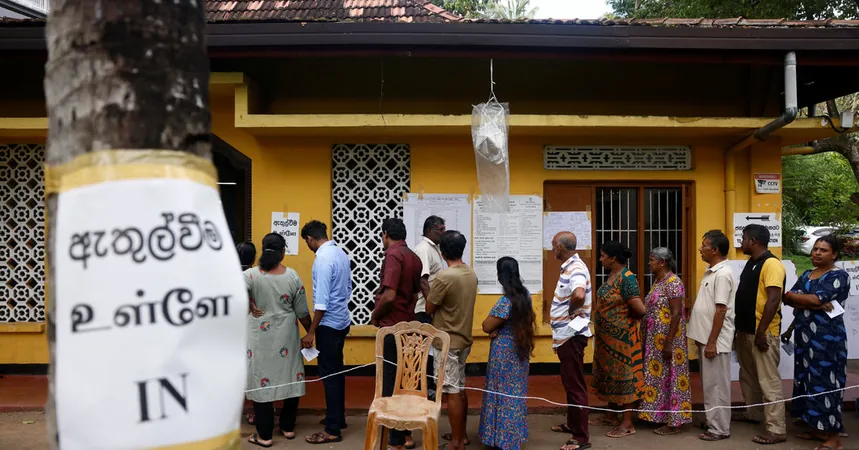
The Clash of Titans: Sri Lanka's High-Stakes Presidential Election
2024-09-21
Introduction
Sri Lanka is set to hold a pivotal presidential election this Saturday, marking the first since the dramatic exit of its strongman president during widespread protests two years ago amid a severe economic crisis.
Economic Context
In 2022, Sri Lanka defaulted on its foreign debt, leading to crippling shortages of essential imports like fuel and food, as its foreign exchange reserves dwindled to alarmingly low levels. In a bid to stabilize the economy and secure a crucial $3 billion bailout from the International Monetary Fund (IMF), the interim government implemented tough austerity measures.
Core Issues
The core issue at the heart of these elections revolves around addressing long-standing economic imbalances. For decades, Sri Lanka has grappled with low taxation, excessive subsidies, and rampant borrowing. Critics accuse the current president, Ranil Wickremesinghe, of unfairly placing the burden of these reforms on the impoverished segments of society, while letting the wealthy elites, who many believe contributed to the economic collapse through corruption and negligence, evade accountability.
Ranil Wickremesinghe’s Presidency
Wickremesinghe ascended to the presidency with backing from the influential Rajapaksa family, which many perceive as a controversial pact where he would avoid pursuing actions against them despite their pivotal role in the economic disarray.
Over the last two years, Wickremesinghe has cultivated an image as a stabilizing force, claiming that the economy is on a path to recovery, underscored by declining inflation rates and a surplus in the country’s current account – a significant indicator of trade balance. He has also hinted at potential tax reductions on essential goods, acknowledging the harsh impact of his austerity measures on low-income families.
The Marxist Challenger
The most notable rival in this election is Anura Kumara Dissanayake, 55, who has gained significant attention by reflecting the public's growing discontent with traditional political parties. The party Dissanayake leads has a turbulent history, once linked to violent Marxist uprisings against the Sri Lankan government. However, over the past decade, he has worked to moderate the party's image, moving it toward more centrist policies.
Dissanayake has aligned himself with the 2022 anti-government protest movement, positioning his party within a larger leftist coalition advocating for a de-centralized governance model. He has vowed to renegotiate Sri Lanka's terms with the IMF and tackle corruption at the highest levels of government, appealing to a populace desperate for reform.
The Opposition Leader
Meanwhile, Sajith Premadasa, 57, the son of a former president, represents another formidable voice in the contest. He has proposed a "social market economy" that aims to harmonize free-market practices with social justice initiatives. Premadasa’s agenda emphasizes fiscal discipline aligned with the IMF agreement, while advocating for modifications designed to alleviate the hardships faced by the economically disadvantaged.
Conclusion
As this election approaches, Sri Lankans are faced with a crucial decision that will shape the country's path forward. Will they opt for a visible shift in leadership toward accountability and reform, or maintain the current trajectory in hopes of a recovering economy under established leadership? The stakes are high, and the outcome could redefine Sri Lanka's political landscape for years to come.




 Brasil (PT)
Brasil (PT)
 Canada (EN)
Canada (EN)
 Chile (ES)
Chile (ES)
 España (ES)
España (ES)
 France (FR)
France (FR)
 Hong Kong (EN)
Hong Kong (EN)
 Italia (IT)
Italia (IT)
 日本 (JA)
日本 (JA)
 Magyarország (HU)
Magyarország (HU)
 Norge (NO)
Norge (NO)
 Polska (PL)
Polska (PL)
 Schweiz (DE)
Schweiz (DE)
 Singapore (EN)
Singapore (EN)
 Sverige (SV)
Sverige (SV)
 Suomi (FI)
Suomi (FI)
 Türkiye (TR)
Türkiye (TR)